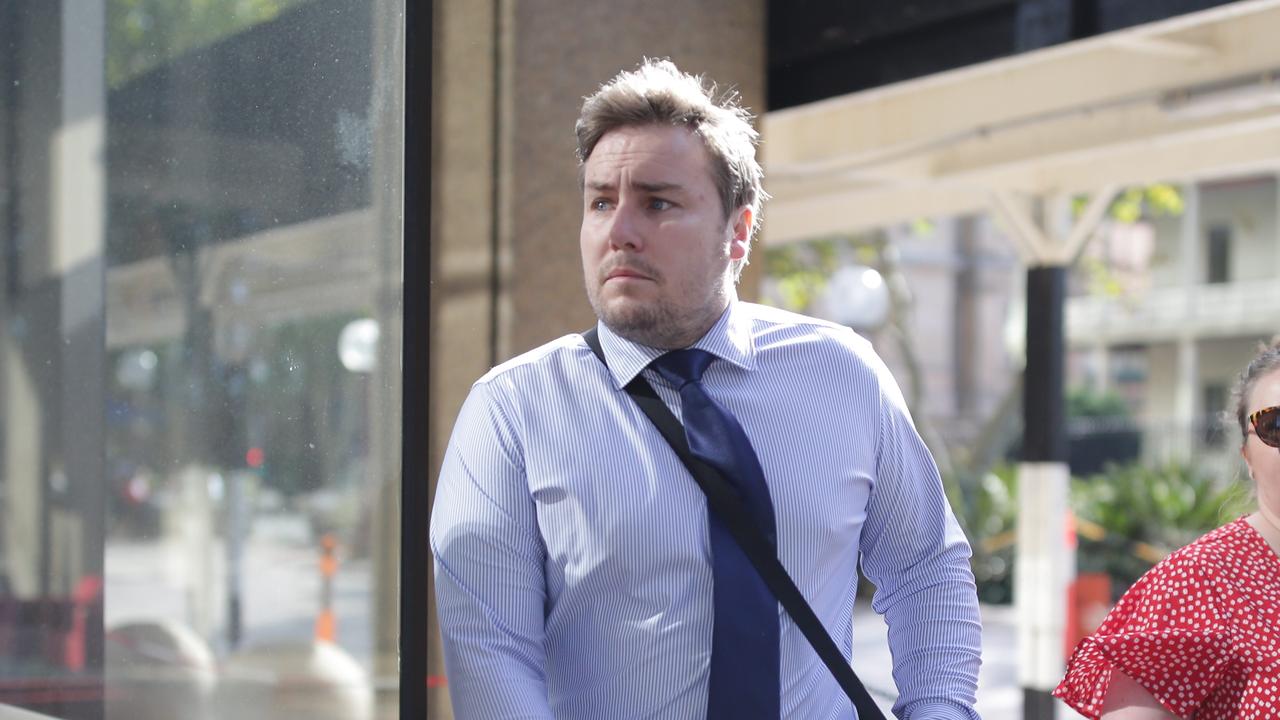‘Greedy’ son of ATO boss on drugs when he swindled nearly $7m from taxpayers, court told
The son of the former deputy commissioner of the ATO was motivated by greed when he defrauded taxpayers out of $105m in an “immoral” tax scam.

The son of a former deputy commissioner of the Australian Taxation Office was on drugs for the majority of the three years in which he directed a $105m tax fraud, a court has heard.
Adam Cranston appeared via audiovisual link in the NSW Supreme Court on Wednesday after being found guilty of masterminding a scam which defrauded the nation out of $105m in taxes.
The jury for his lengthy trial was told Cranston’s company, Plutus Payroll, misappropriated $105m in taxes over a three-year period.
His sister Lauren Cranston, lawyer Dev Menon, Patrick Willmott, and Jason Onley were also found guilty of their involvement in one of the biggest tax scams in Australia’s history.

The funds were siphoned off into second-tier companies so the five conspirators could spend it on luxury properties, boats, and jewellery.
The court was told Cranston personally gained more than $6.8m from the scheme, which he splashed on flashy cars, a plane, and other “extravagant” purchases.
His lawyer John Stratton SC told the court Cranston had apparently been using illegal drugs during the majority of the time the tax scam was operational.
“It appears that … the offender for much of the time was affected by substances,” he said.
He said the 36-year-old had admitted he was “motivated by the prospect of financial gain” when he pocketed nearly $7m of taxpayers’ money.
Cranston told a psychologist he was “ashamed” of his role in establishing and perpetuating the $105m scam.
“I did not realise the gravity of what I did,” he said.
“It was wrong, stupid, and greedy.”
However, crown prosecutor Rae Sharp KC argued Cranston had only shown remorse for how his criminality affected his family without acknowledging the impact on the community.
“None of the expressions of remorse really grapple with the effect of the offending,” she said.

Mr Stratton said mental health conditions had contributed to the 36-year-old’s “impulsive” decision to engage in the tax scam.
Yet the crown prosecutor rejected the suggestion of spontaneity, emphasising that Cranston was involved in all the “key decisions” since the establishment of the tax fraud scheme.
She highlighted the “sophisticated nature” of the scam and Cranston’s deliberate steps to plan and implement it while taking measures to avoid detection.
“These are all very intentional and targeted steps that don’t reflect impulsive behaviour,” Ms Sharp said.
“He made a conscious decision to engage in this offending.”

Cranston explained he had rationalised the scam after working with directors of companies who drove Ferraris and had no intention of paying their massive tax debts.
“I was always told it’s immoral but not illegal,” he told a psychologist.
The court heard the son of former ATO deputy commissioner Michael Cranston had controlled the second tier companies which were crucial to the functioning of the scam.
Despite the court finding he had orchestrated the scheme, his lawyer argued Cranston had not “controlled the entire enterprise”.
“Your honour would find he was a principal (offender) but not the principal,” Mr Stratton said.
“He was deliberately kept in the dark about the details of the procedure.”
More Coverage
He said the Plutus Payroll founder Simon Anquetil was the main offender and had received “twice as much” money as Cranston for his role in the tax scam.
“It’s no accident, that disparity,” Mr Stratton noted.
Justice Anthony Payne SC will deliver his decision next week as to whether Cranston was as culpable as Anquetil, who was jailed for at least five years for establishing the fraud.






